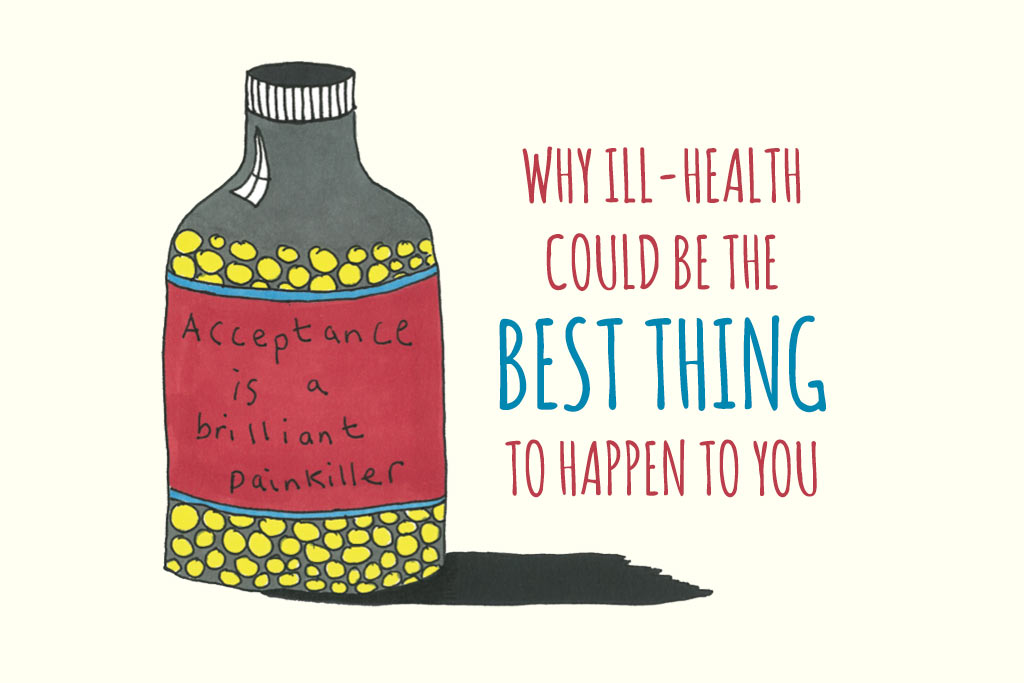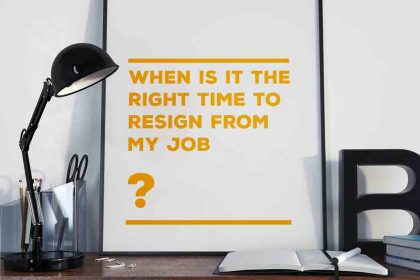Four toxic beliefs that are sabotaging mums’ success and happiness
Are you struggling to be happy and successful in your life and work? Maybe you’re struggling with one of mums’ four common toxic beliefs.
We recently shared the ten giveaway signs of a toxic person (and how to handle them). But what about our own toxic habits? Or more specifically, the toxic beliefs we carry around that hold us back in our lives and sabotage our chances of happiness?
However healthy you may otherwise be, it’s easy to unknowingly live under the limitations of a toxic belief that no longer serves you – or never did but you somehow haven’t yet managed to shake off.
Four toxic beliefs that are sabotaging mums’ lives
But what are these toxic beliefs that are sabotaging your life? And how can you learn to let them go? To help you, we’ve identified four unhealthy and unhelpful beliefs that many mums suffer from – and explain how you can learn to get yours go.
1) Everything I do must be perfect
On the one hand, striving for perfection is an admirable trait. After all, shouldn’t we try to do everything to the very best of our ability?
But taken to the extreme, settling for nothing less than absolute perfection won’t get you very far. The fact is that few of us are perfect at everything (or even anything). Human beings are made to be imperfect, and that’s fine.
There’s a big difference between trying to be perfect, and expecting yourself (or others) to attain perfection. By all means do your very best in any situation, but also accept your limitations. And this is as true of your career as it is being a mum or partner.
These limitations may be your own – a lack of natural talent or the right character traits to succeed in a particular task. Or they may be imposed by situation – not enough time or mental space to complete a job to the best of your ability. Whatever they are, make your peace with them. And understand that sometimes, good enough is just that – good enough.
It’s one thing to want to be the very best, to be perfect or create perfection, but to hold yourself rigidly to that expectation, and chastise yourself if you fail to reach it is unreasonable.
In the short term, you’ll feel upset, dejected and unsatisfied. But long term is where this toxic belief is really damaging. You’ll lose motivation and may even avoid starting tasks that you don’t think you’ll do perfectly. And your self-confidence will take a battering too – if you consistently fall short of your self-imposed standards, how can you feel confident, successful and capable?
So try to let go of unrealistic expectations of yourself and others. Learn to enjoy the doing, and take some pressure off yourself to achieve only perfect results. We’re not saying you should put less effort in or lower your standards, just remove any unhealthy expectations and be happy with your achievements, knowing you have done your best.
2) I don’t have time for ‘me’
As busy working mums it’s easy de-prioritise ourselves and focus instead on the needs and demands of others – our boss, our customers, our children, our partner, our family, our friends, our colleagues etc.
There’s a long list of people we need to think about, and if you put yourself a the end of it, how likely is it you’ll ever get around to ‘me’? But the simple fact is that if you don’t take care of yourself, then eventually you’ll have nothing left for all the other people in your life who need you. Or you’ll feel a growing resentment that you’re giving everything to others and not getting enough back.
If it helps, let’s use the oxygen analogy. When you’re on a plane and the oxygen masks come down, you’re told to put your own on before attending to the needs of others – even your own children. That’s because if you fall unconscious, there’ll be no one left to save your children.
And every day life is no different. If your physical and emotional needs aren’t met eventually you’ll break down. You won’t have the energy to tackle your work or business effectively, to cook fresh meals for your family, or play cheerfully with your children.
In life we need to put ourselves first. It isn’t selfish, it’s survival. Because we need to be healthy and happy to attend to the needs and wants of everyone else in our life.
So start scheduling time for you, and do things that make you happy and keep you healthy. It could be as simple as some quiet time to read a book or watch a TV show you love. It could be meeting a friend for coffee or going to the gym. Or it could even be embarking on a project that excites and fulfills you.
Make these activities a priority and do so without guilt. Treat them as essential, and don’t allow other pressures to eat into them. Plan your time for these activities carefully and make sure you clear your schedule, so you can enjoy them without niggles of other tasks you should have completed.
And don’t be tempted to allow others to eat into your time – they (and their needs) can wait. Once you start caring regularly for your own needs, you’l have more energy, head space and good will to offer them anyway.
3) I’m failing my children
This toxic thought is closely related to the drive for perfection – the idea that you’re somehow failing your children as a mother. It’s sadly a belief we hear a lot from mums, and have even been guilty of ourselves in the past.
There’s a lot of pressure on mums today. We need to be so many things to so many people – great mums, great partners, great friends, great daughters and great employees. And it’s easy to feel like we’re failing in one or more of our roles… most often our role as a mum.
One of the problems is that there’s no clear definition of what a great mum actually is, and the only real results we’ll get from our efforts – the way we can work out whether we have got it right or not – is when our kids grow up to be happy, healthy and successful adults. In the meantime, we’re left fumbling around in the dark, guessing as to whether we’re helping or hurting our children with the choices we make.
It doesn’t help that parenthood is such an emotive subject, and everyone has a very different opinion on what’s right and wrong. Or that the current accepted wisdoms are always changing. Just look at how health guidelines about weaning have changed over the years, from when to wean to what to feed them.
It’s also undoubtedly the biggest responsibility you’ll have in your life – raising and shaping another person – and one you have no training or qualifications for, so it’s understandable that you would be concerned about getting it right.
But there’s a world of difference between doing your best to get it right, and chastising yourself for perceived mistakes. So, again to steal from our advice around perfection, just do your best with your children, and accept that being good enough is just that.
In fact, stressing about being the BEST MOTHER EVER will probably have the opposite effect. You’ll run around after your kids, taking them to every class you can possibly sign them up for. As a result you may feel increasingly resentful of the sacrifices you’re making and maybe even pressure or guilt trip them into being more grateful or trying harder to repay your efforts.
Or you’ll agonise over every parenting decision you make, and become paralysed by self-doubt – unable to confidently make, and stand by, decisions in the fear that you may make the wrong choice.
Instead of being relaxed, comfortable and happy around your children, you’ll be stressed, angry, fearful and exhausted. And what lessons are you passing onto your children? That life is hard? That it’s okay, if not normal, to doubt yourself?
So yes, let go of your fear of failing your children. Because, conversely, the very fact you fear you aren’t a good mum, probably means that you are a brilliant one!
4) I need to put in twice as much effort as my colleagues
Once we return to the workplace as mums, we become very aware of our new status, and very conscious of others’ awareness of it too.
We don’t want our colleagues or boss to assume that, because we’re now mums, we’re any less committed, ambitious or hard working. We don’t want to be passed over for promotions and opportunities – or worse considered for demotion or redundancy.
This worry is compounded further if we’ve managed to negotiate flexible working arrangements, or need to leave strictly on time to take over from childcare.
So what do we do? We try to demonstrate that we’re just as good as our colleagues, despite being a mum, by working harder. We work through lunchbreaks, take work home and even continue to take calls and field emails on our days off.
It’s no surprise then that research shows that mums with flexible working arrangements are the most productive employees. Or that when people work from home they actually work longer hours – adding up to an incredible extra 24 days of work a year!
But although understandable, this belief can actually be quite damaging. Because not only will you eventually exhaust yourself to the point where you cease to enjoy your work, or have the mental and physical energy to perform to your best ability, but you’re sending completely the wrong message to your employer and colleagues.
If you feel guilty about being a working mum they will pick up on that. Your manner and actions will unconsciously deliver to them the very impression that you are trying to avoid – that you are somehow less of a perfect employee now you have children. If you feel like you are trying to cover up (self-perceived) inadequacies, it will look like it.
You’ll also signal to less scrupulous managers and colleagues that you have weak boundaries, and they will happily dump on you as much work and responsibilities as you let them, with no concern as to your wellbeing. Which in turn will only add to your feelings of failure and drive you closer to a breakdown or resignation.
Instead, by confidently managing your situation, you can continue to enjoy your work and be seen to be successful – irrespective of the fact you’re a mum. To help you achieve this, read this advice from Jessica Chivers, the managing director of The talent Keeper Specialists and author of Mothers Work! How to Get a Grip on Guilt and Make a Smooth Return to Work.
Just do your best
How many of these toxic beliefs have you struggled with, or are struggling with now? Can you identify areas that you can work on to be happier and healthier?
If we had to offer you one piece of advice to help you, it would be to just do your best in life, and accept that that is good enough. It’s all anyone can ask of you, and to be happy and successful, it’s all you should be demanding of yourself too.










